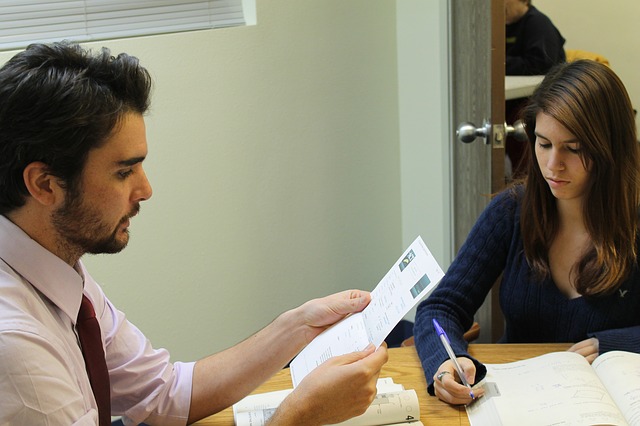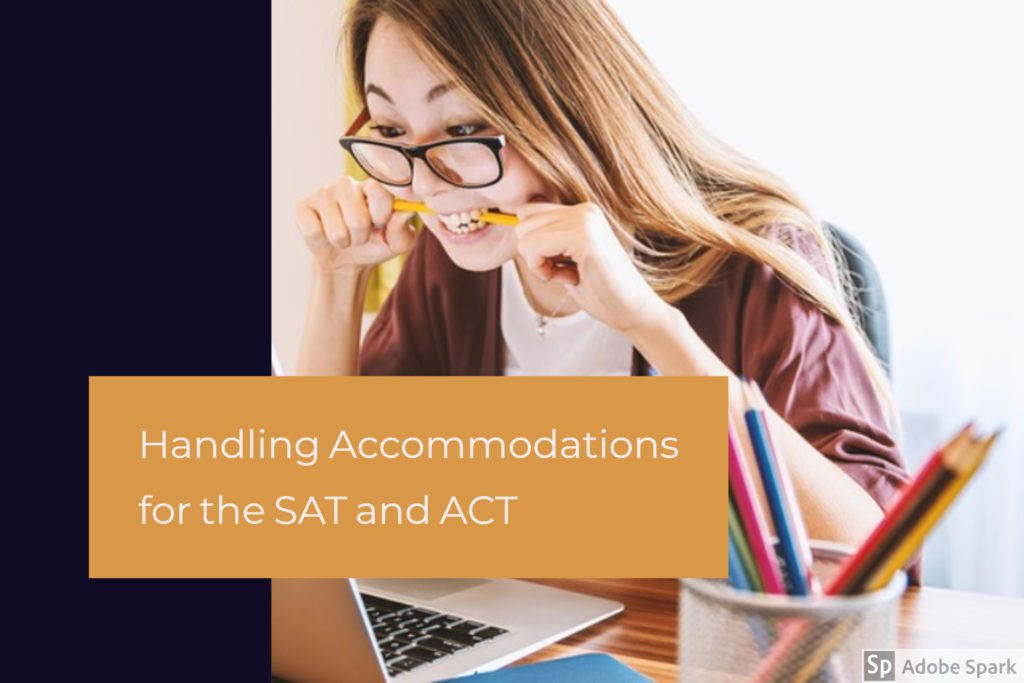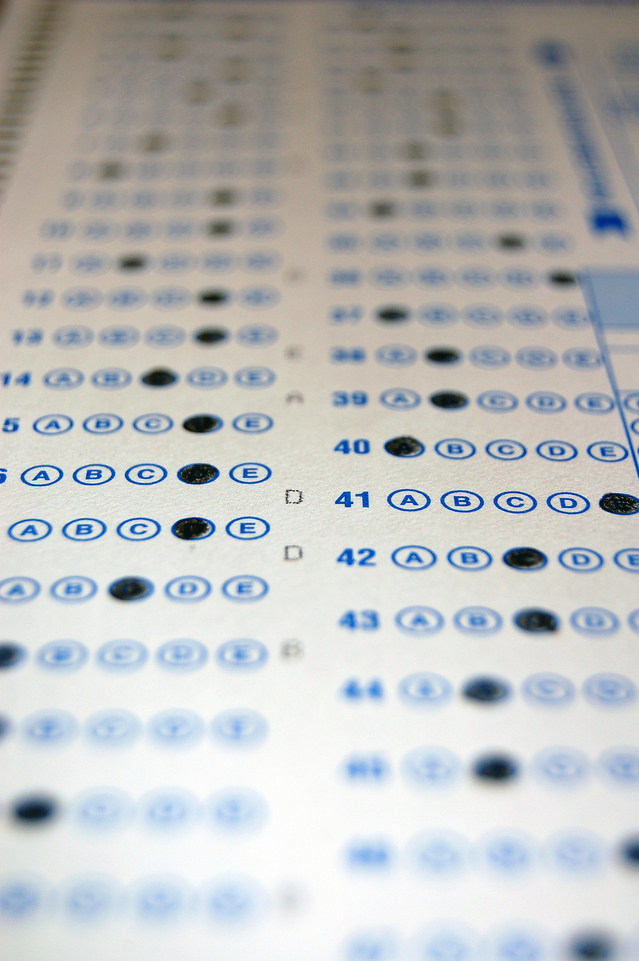
Should your student work with a professional test prep tutor? Bobby Hood, of Noodle Pros, says YES!
Bobby has been tutoring professionally for 7 years. He is a member of the Triple Nine Society, an association of individuals with IQ scores above the 99.9th percentile. After graduating high school as valedictorian with an SAT score of 800 Math and 790 Verbal, he attended Texas Christian University on a full-tuition scholarship.
Before he began tutoring, Bobby had two prior careers as a CPA and attorney respectively. Bobby worked as a CPA for two years before attending The University of Texas School of Law.
After 10 years of practicing law, Bobby returned to his love of teaching and began tutoring students. He tutors the SAT, ACT, LSAT, GMAT, GRE, GRE, and MCAT CARS.
I spoke with Bobby about why he tutors, how to prep for the SAT or ACT, when to start studying, and the advantages of working with a professional test prep tutor.
1. After 7 years, why do you still do it?
When I worked as a CPA and as an attorney, I never felt like I was actually helping make a positive difference in the world. Now I make a difference in students’ lives every single day. It’s rewarding and affirming, and it never gets boring, because every student is different.
2. A course and/or many tutors would be a lot cheaper, why should students not take a course? Why work with a super-tutor?
Most courses are designed with a “one-size-fits-all” approach; generally, test prep courses are geared toward students who are scoring below or near the median. A student at that level may benefit greatly from starting with a course or other prep material in order to master the underlying content needed to earn a high score on the test. However, in order to move significantly above the median (say, above the 84th percentile or so), a student will need to focus on the patterns of the test in a very individualized way.
Today’s students generally have very busy schedules, and need to balance test preparation with studying for challenging AP courses and participating in extracurricular activities and organizations. Individual attention from a tutor with a great deal of experience in adjusting the preparation to the needs of the student can in most cases result in the highest improvements quite efficiently, allowing the student to focus on all of those other important facets of the high school experience.
3. What are three things that all students can do that will improve their scores?
- Focus on the fact that your past educational background has already prepared you to answer most or all of the test’s questions correctly, as long as you know the patterns of the questions and the proper way to approach them.
- Take the test in a mindful, deliberate manner, choosing to work the questions and passages that will be easiest for you first. Save the questions that require the most work until the end, when you can focus on them without worrying about other remaining questions. In the end, the test is more a test of your attitude and approach than it is of knowledge or ability.
- Practice intelligently. Learn the strategies, then take a practice test under timed conditions and apply those strategies. Spend at least half as much time reviewing the test as you did taking it. What questions did you miss or spend too much time on? How can you change your approach to similar questions in the future?
4. What should people look for in a good tutor?
Good tutors are flexible and will take the time to explain how they will approach the tutoring and how it will apply to your student. If a tutor is not responsive to questions up front, then the tutor is not likely to do a good job of communicating with you or the student as the tutorial progresses.
5. What happens if you are just not a good test taker?
Almost every student describes himself or herself as “not a good test taker”, and this is almost never true. Standardized tests are designed to make students feel like they are not good test takers; the primary goal of my tutoring is to disabuse students of this notion, and help them realize that once they know the patterns of the test, they will gain the confidence that they are just as good at test-taking as they are talented in other endeavors of their life.
6. How many times should you take the ACT/SAT?
As part of your preparation, you should take practice tests until you are consistently earning a score that you would be happy with and that represents your skills and background appropriately. Once you are consistently achieving those scores on practice tests, you should take the actual test and look to achieve a similar (or higher) score. Of course, anyone can have an off day, so you might need to take it multiple times to get the score you’re looking for. That said, once you’ve earned the score you want, there’s no need to continue.
7. How early should you start preparing?
Trigonometry is the highest level of math tested on both the SAT and the ACT. So, you can begin as soon as you have learned Trig (generally, at the end of Algebra II). You can begin earlier if you like, but you won’t be prepared to earn the highest possible score until you have gotten through Trig.
The best way to decide when to start preparing is to work backwards from your goal. Since you would prefer to spend the summer before Senior year visiting colleges and preparing your college application, you should have your scores in hand by the June tests of Junior year at the latest. Therefore, you should start your preparation in the Spring of Junior year at the latest, or earlier if possible. Sophomore year is usually a bit early to begin preparing, but not out of the question if the student is already taking Algebra II.
If there is any chance that the student will be a contender for National Merit Finalist status, then preparation should begin in the summer before Junior year, leading up to the PSAT/NMSQT test in October of Junior year, since that is the test that is used to determine National Merit Finalist awards.
8. What is important about practice tests?
Practice tests are the only way to realistically assess whether you are prepared to take the actual test. It’s important to take practice tests under timed conditions and in surroundings that best approximate the actual test. Many students mistakenly focus only on whether they are capable of answering questions correctly, when the important question is whether they are able to answer questions correctly under the time pressure of the test.
9. When should students stop worrying about their score?
You should never begin worrying about your score. Think about it this way: there are questions on the test that, based on your past educational background, you are “supposed to get right.” There are also questions on the test that you are not supposed to get right. Your goal is to use strategies to make sure that you approach the test in the right way and get right all of those questions that you’re supposed to get right, instead of rushing through the test and making errors on lots of questions.
If you do that, then you should be proud of your score, because it properly represents you and your educational experience. Now, if the strategies also help you get some of those questions that you WEREN’T supposed to get right, well… that’s a nice bonus.
10. Many students say they insist on in-person tutoring versus online tutoring, what do you say to that?
In my experience, online tutoring is substantially more effective than in-person tutoring. It sounds counter-intuitive, since effective online tutoring has only been possible for a few years now. However, it fits with the way today’s students tend to learn. I began to notice in recent years that students in a classroom will often take a photo of problems worked on the board in a classroom, and then refer back to that photo later when studying. In online tutoring, everything we do – every strategy I teach – is written on the whiteboard and you save it at the end as a PDF file.
When tutoring is face-to-face, you have to divide your attention between listening to what I’m saying, looking at what I’m writing down, and taking notes for future reference. This slows things down and leads to less comprehension. In online tutoring, we discuss and work through problems together, and everything goes onto the whiteboard for your own future reference. You really have to try it to see how amazing it is. Many students have mentioned to me after their first sessions that they were not expecting it to be so effective, and generally they leave the sessions enthusiastic to continue the tutoring.
11. Are you just teaching test strategy tricks or are you really teaching a student how to read or do math?
I’m definitely not teaching you to read or to do math. However, I’m definitely teaching you how to read well and how to do math well. In other words, tutoring is all about learning how to think critically: to note the way questions and answers are worded, and what that tells you about how to approach the problem, and what answers to eliminate before you fall into a trap. These critical thinking skills don’t just improve your scores on the test; they will make every test you ever take easier, and probably make you much better at reading college textbooks for your courses in a more engaged and efficient manner.
12. What are some good resources that are available to all students?
A student who is at or below the median test score probably needs to do work to get the basic content down. Khan Academy is an excellent free source that can help students learn and practice basic content. However, don’t make the mistake of thinking that Khan Academy teaches test strategy. Khan Academy is the free starting point for mastering content areas that you are weak in; after that, move on to actual test strategies.
For test strategies, the books Cracking the ACT and Cracking the SAT by The Princeton Review are excellent resources to start with. Learn the strategies, and then practice applying them on actual ACT and SAT tests. For the ACT, the Real ACT Prep Guide is the only approved source of actual ACT tests. For the SAT, use the actual SAT practice tests on the College Board and Khan Academy sites – but focus on tests 5, 6, 7, and 8, which are actual real SATs that were released as practice tests after being administered.
13. Is there a moment or a story you can think of that has had a large impact on your career as a tutor?
One of my former ACT students returned four years later to prepare for the MCAT. He told me that the critical thinking skills he had learned while tutoring with me had helped him study in college efficiently and do very well on the demanding pre-med curriculum. At that point it hit home to me that tutoring isn’t just about taking one test, but instead is about a mindful approach to learning that applies throughout your lifetime. It’s really helped me to appreciate how important attitude and critical thinking are not just for standardized tests, but for approaching life in general.
14. If you knew then what you know now, what would you do differently on the ACT or SAT?
Haha well… I used Cracking the SAT and Cracking the ACT to prepare, even way back then, and I only missed the perfect score on each test by one question. So I wouldn’t do anything differently on the tests themselves, but perhaps I would rather have realized much earlier that my passion in life is teaching and tutoring.
This is a sponsored post and I have received compensation for this interview.










 In February and March, your college bound teen could be taking the ACT or the SAT. This week, I’m going to discuss test prep. First on the list–should you hire a test prep tutor? Is it worth the investment? Will it improve your student’s score? Is a tutor really necessary with all the free help you can find online?
In February and March, your college bound teen could be taking the ACT or the SAT. This week, I’m going to discuss test prep. First on the list–should you hire a test prep tutor? Is it worth the investment? Will it improve your student’s score? Is a tutor really necessary with all the free help you can find online?